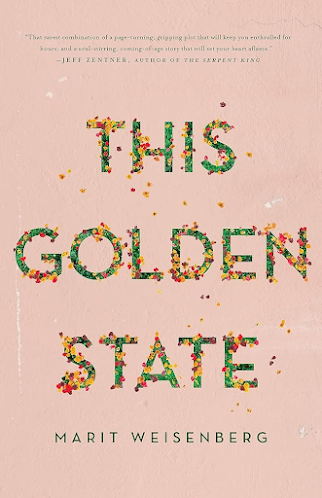Baer v. Bushnell

Who created the video game? What is a “video game,” precisely? Define a “game” that works on your cathode-ray-tube TV set. How does one control the game? What does it look like? How is it manufactured to be cheaper? The graphic novel, Easy to Learn, Difficult to Master, answers these questions. The answers today may seem like a given, but just around six decades ago, only one person came up with that answer: Ralph Baer. Or was it? He had a rival: Nolan Bushnell.
The novel, Easy to Learn, Difficult to Master starts with a ping-pong table in the center of a coliseum. The two contestants are, of course, Ralph Baer and Nolan Bushnell. As the novel progresses, the competition increasingly heats up, and the rules change drastically, so much so that the game itself changes. As the two fathers of the video game are fighting, they tell both sides of the story—the story of the birth of the video game.
Born in Rodalben, Germany in 1922, Ralph Baer was living in a dangerous time, especially for a Jew. At the age of 14, he was expelled from school (despite having perfect grades), and escaped Germany shortly thereafter, bound for the United States. Scarily enough, Kristallnacht, the state-sponsored pillaging of synagogues and murdering of Jews (including people that were German citizens of Jewish descent) happened very soon after. Here’s a thought experiment: If Baer never escaped Germany, therefore getting killed on Kristallnacht, then video games, and perhaps even advanced computing, would not exist today. In his time working at a leather factory and serving in World War II in the army intelligence in the U.S. and in Normandy, France, he tried to make his work more enjoyable, such as transforming a German landmine detector into a radio.
After WWII, a new technology was taking the market by storm. People could now watch events, such as the Coronation, from afar, hence the device’s name, “television.” At this time, Baer was working at the Loral Corp oration in the Bronx.
And that’s when I had the idea. What if you do something other than just passively watch television? What if you could interact with it? (15)
Baer proposed this idea to a coworker, but the man laughed in his face and told him that “it’ll never work. Keep on dreaming, Ralphy boy” (15). In the 1960s, the television market was growing very rapidly. By that time, Baer had a job at Sanders Corporation in Nashua, New Hampshire. He was to oversee the development of displays for the military. But, in discovering that the current technology of the time was enough for the practical application and production of his television game idea, he began brainstorming the “TV gaming display,” a box that would be connected to a TV set to play games. Luckily, Baer managed to convince two of his coworkers, named “Bill” and “Bill,” respectively, to help him with his passion project. He introduced the project to his bosses, who “thought [he] was nuts” and only gave him $2,500 in funding. After successfully creating a table-tennis-like game of a square being bounced between two larger vertical rectangles, Baer and his team applied for a patent (US-3728480-A) for “television gaming and training apparatus.” However, they wanted to further this advancement by introducing it to major TV manufacturers, starting with General Electric. Sadly, just like his coworker at Loral mocked him, the heads of the other companies did also—except for one: Magnavox. From there, the first home console, the Magnavox Odyssey, was produced.
This is where Bushnell comes in. While working as a carny at the Lagoon Amusement Park in Salt Lake City in the 1960s, he learned that a good game is one that is “easy to learn and difficult to master,” hence the title of the novel (30). At MIT, in 1962, a group of students were experimenting with the PDP-1, a “minicomputer,” and ended up creating “Spacewar!” This inspired Bushnell to begin developing a device along with his friend Ted Dabney, that, just like Baer and his team’s creation, manipulated images on a screen. Later at the Music Operators of America Expo in Chicago, he demoed “Computer Space,” which was a ripoff of Spacewar!. He tested the game in various bars in Sunnyvale, California, but it was still too confusing for the average person. Despite the confusion, Bushnell and Dabney decided to start a new video game company, Atari. At the National Computer Conference at the Airport Marina Hotel in Burlingame, California (what a mouthful!), Bushnell tried the Magnavox Odyssey. He copied from Baer’s Magnavox table tennis game and formulated a very similar game—this time with a score counter. Allan Alcorn, a new hire at Atari, created the game “Pong,” an arcade clone. It was a hit in bars, mainly because it was easy to learn.
However, Atari made a huge mistake: They forgot to copyright the schematic for Pong! Baer “nearly fell off [his] chair laughing,” but Bushnell deliberately labeled the chips with the wrong types. This moved Atari into the number one position of video game manufacturers (until their crash, which was never mentioned in this novel). Atari also hired “the two Steves,” Jobs and Wozniak, to design “Breakout” (67).
Ralph Baer took Nolan Bushnell to court for copying his idea of his table tennis game. In the end, Bushnell was found to have copied the table tennis game in Pong after viewing the Magnavox Odyssey at the National Computer Conference. As revenge, Baer copied the idea of Atari’s “Touch-Me” game, and created the “Simon” game—this time on a new handheld.
Fifty years later, Baer and Bushnell are remembered as the pioneers of video games. After selling Atari to Warner Brothers in 1976, Bushnell went on to create Chuck E. Cheese, the restaurant chain known for its animatronics. Baer received the National Medal of Technology in 2004 for his revolutionary work in developing and commercializing the computer game.
- Kyujin


Comments
Post a Comment